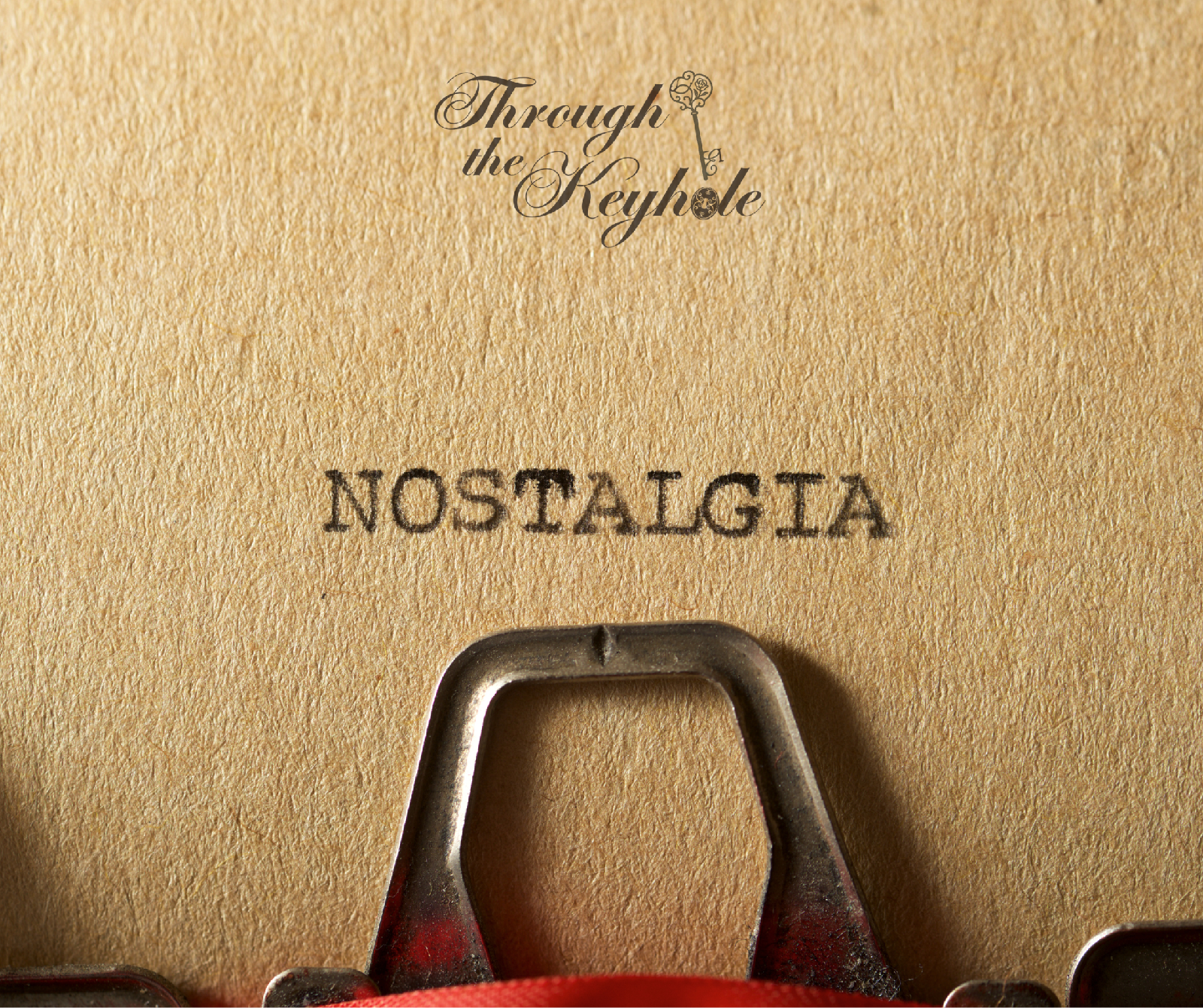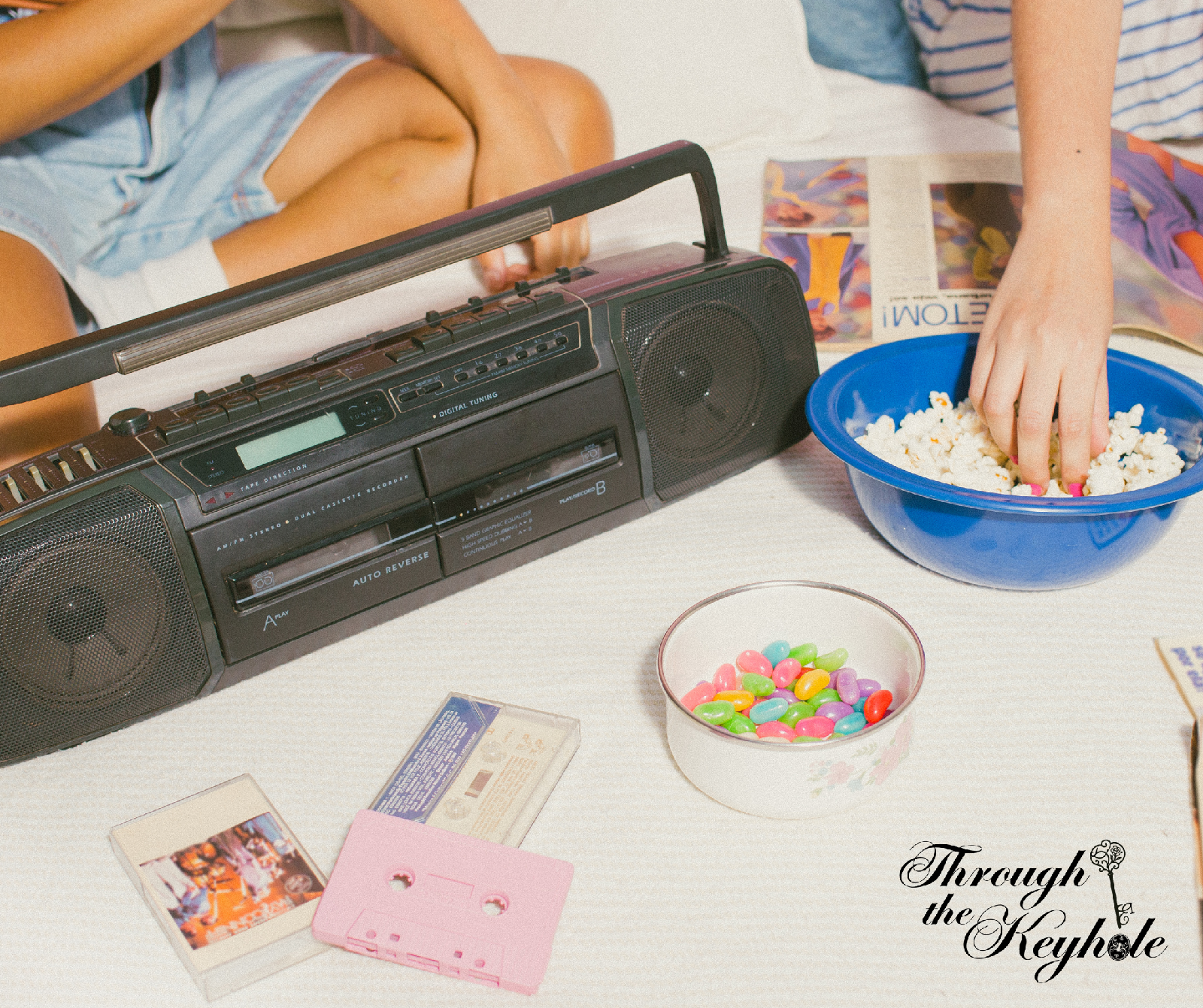The Power of Nostalgia: Why We Long for the Past and Why It Matters
Almost everyone has one, sometimes it's on the shelf in the closet, sometimes it's slid under a bed, up in the attic or in a cedar chest at the foot of a bed. Sometimes it's a shoebox, or maybe a reused cardboard box or plastic bin. But whatever form it takes, almost every home has one. Some people would rather not look inside, others simply choose not to make time but when we open it, we are often overcome by a sensation that sweeps us away.
A keepsake box or memory box is one of the most powerful material possessions we have next to the bible. Even the photo albums on your phone or computer can't compare because they lack the power to awaken as many senses. The touch, the sight, the smell, or the sound can be all it takes to transport us back in time, through a powerful sensation that aches in the most wonderful way. This experience is known as nostalgia.
But what is nostalgia? Is it just sentimentality? Or could it be something far more meaningful—something good and something necessary?
Defining nostalgia is a bit like trying to define love. We can describe its effects and trace its causes, but it’s only truly understood once it’s felt.
What Is Nostalgia?
The word nostalgia comes from two Greek roots: nostos, meaning “return home,” and
algos, meaning “pain.”
It was first coined in the 17th century by a Swiss medical student to describe the homesickness experienced by soldiers longing for their homeland. It was seen as an illness that needed to be cured.
But today, we understand nostalgia very differently. Psychologists now define it as a complex emotional experience that blends elements of longing, memory, and comfort. It’s not just about missing the past—it’s about feeling deeply connected to it.
Far from being a weakness, nostalgia is now seen as a strength. A gift. And that is exactly how I see it. It's a magnificent gift that God has given us an ability to remember and to feel. I believe that nostalgia isn't only like love in being hard to define but that it is a form of love that we experience through memory.
The Science of Nostalgia: What Studies Reveal
Modern research has turned a curious eye toward nostalgia, and what they’ve discovered is both fascinating and affirming.
Dr. Constantine Sedikides, a pioneer in nostalgia research, has found that reminiscing about meaningful moments actually improves psychological well-being. Nostalgia, his studies show, can:
▪︎ Elevate mood
▪︎ Increase optimism and self-esteem
▪︎ Reduce feelings of loneliness
▪︎ Help us feel more connected to others and more grounded in our identity
Neurologically, nostalgia activates areas in the brain associated with reward, memory, and a way to create meaning. It also lights up the medial prefrontal cortex, which helps us reflect on ourselves and our relationships.
Even our senses join in. The smell of bread baking, a familiar old jingle, the faded colors of a vintage photo—these triggers can carry us instantly to a moment long gone but deeply held. Nostalgia is sensory, emotional, and profoundly human.
It’s worth pausing here to consider just how closely the experience of nostalgia mirrors the experience of being in love. These effects of nostalgia overlap significantly with what researchers observe in people who are in love. Both nostalgia and love activate similar regions of the brain and stir many of the same emotional benefits. In fact, both:
▪︎ Lift our spirits and flood us with warmth
▪︎ Reinforce our sense of worth and belonging
▪︎ Anchor us in relationship and memory
▪︎ Help us understand who we are in the context of others
Researchers have noted that nostalgia is, in many ways, a social emotion. It turns our hearts toward the people who shaped us, the places where we belonged, and the moments when we were deeply known.
When we feel nostalgia, we’re often remembering love. Love for a person, a place, a simpler time—or even just the way something made us feel.
It may not be romantic, but it’s no less real. And perhaps that’s why nostalgia matters so much: it reveals the ways we have been loved and the joy remembered through the love.
Why We Crave the Past
Nostalgia often comes to visit in times of change, uncertainty, or stress. When the world feels unstable, we reach for what was—not to escape the present, but to anchor ourselves in something that feels safe, sure, and real.
It’s not about being stuck in the past. It’s about connecting our past to our present, creating a sense of continuity and identity. It reminds us who we are and where we came from.
And perhaps even more powerfully, nostalgia can offer a glimpse of what we hope to preserve moving forward.
Why Nostalgia Is Good for the Soul
There’s something quite sacred about remembering. Scripture calls us again and again to remember the works of the Lord, to pass down stories to our children, to preserve truth and tradition.
“Remember the days of old; consider the generations long past.”
—Deuteronomy 32:7
Nostalgia, in this light, becomes a kind of stewardship. It nurtures gratitude, fosters emotional resilience and reminds us of the beauty in ordinary days. And for creatives, it fuels inspiration—turning vintage photos into art, old melodies into new songs, faded letters into blog posts.
It helps us slow down and pay attention. To moments. To people. To God’s faithfulness woven through it all.
Is Nostalgia Trending?
You’ve probably noticed it:
▪︎ Vintage fashion revivals
▪︎ Retro home decor
▪︎ Classic hymns finding their way into modern playlists
Entire aesthetics built around a longing for simpler times—#cottagecore, #grandmacore, even 90s-core. We are, collectively, reaching back. And it’s not a coincidence.
In a digital age that moves too fast and demands too much, nostalgia gives us permission to pause. To root ourselves. To remember what matters. It’s no wonder nostalgic trends are thriving—they remind us that beauty, simplicity, and meaning never go out of style.
An Invitation to dust off your Keepsake Box
Nostalgia isn’t just a feeling. It’s a thread—a golden one—that connects us to our stories, our families, and our faith.
Whether it’s a song from your childhood, family photos confined to a box, or an aesthetic that brings a story and a feeling to your home decor or wardrobe, I encourage you to make space for nostalgia. Not to get lost in the past, but to carry it with you. To learn from it. To live more deeply because of it's a part of who you are.
After all, the things we treasure most aren’t gone. They’re just hidden in our hearts—waiting to be remembered.







Comments
Post a Comment